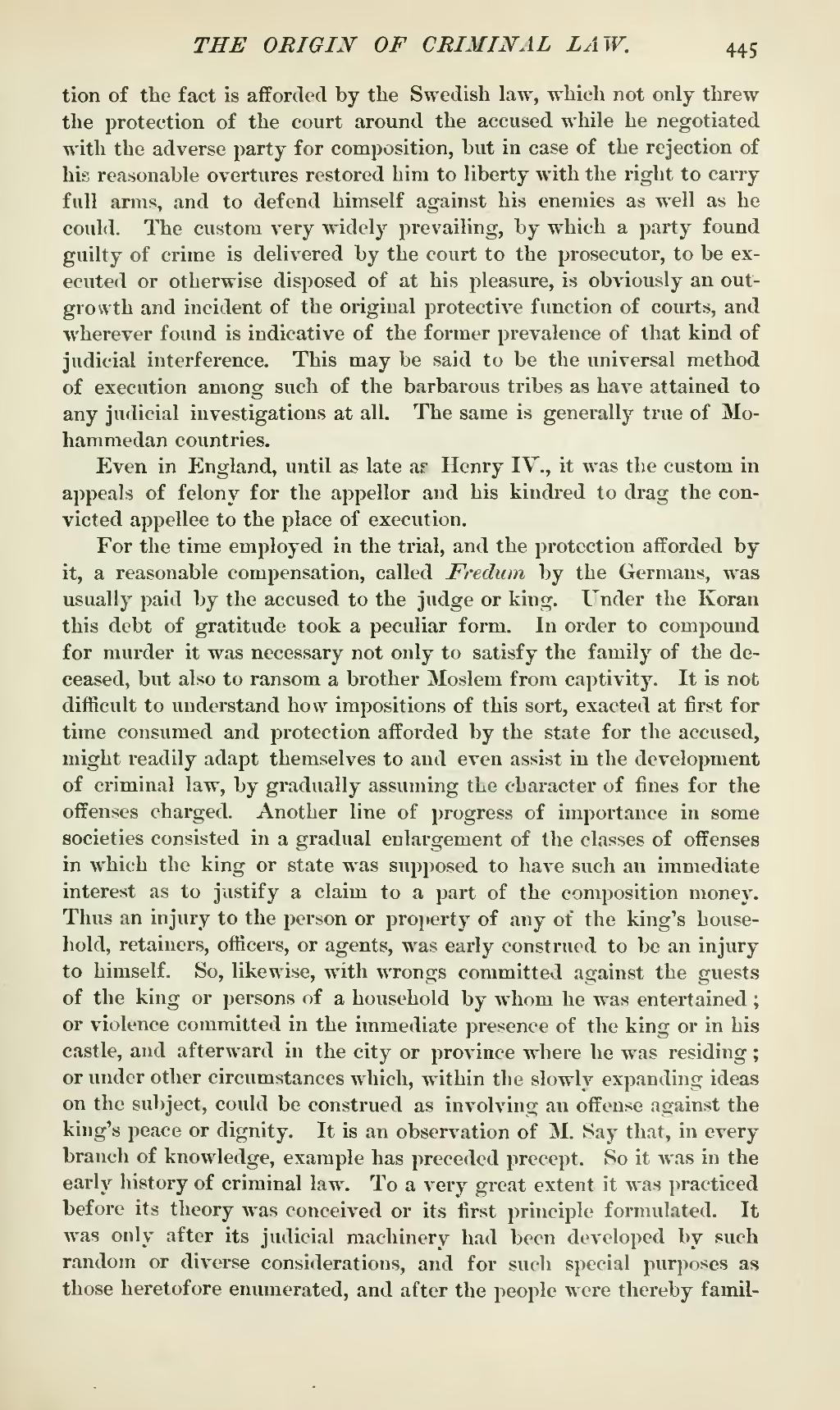tion of the fact is afforded by the Swedish law, which not only threw the protection of the court around the accused while he negotiated with the adverse party for composition, but in case of the rejection of his reasonable overtures restored him to liberty with the right to carry full arms, and to defend himself against his enemies as well as he could. The custom very widely prevailing, by which a party found guilty of crime is delivered by the court to the prosecutor, to be executed or otherwise disposed of at his pleasure, is obviously an outgrowth and incident of the original protective function of courts, and wherever found is indicative of the former prevalence of that kind of judicial interference. This may be said to be the universal method of execution among such of the barbarous tribes as have attained to any judicial investigations at all. The same is generally true of Mohammedan countries.
Even in England, until as late as Henry IV., it was the custom in appeals of felony for the appellor and his kindred to drag the convicted appellee to the place of execution.
For the time employed in the trial, and the protection afforded by it, a reasonable compensation, called Fredum by the Germans, was usually paid by the accused to the judge or king. Under the Koran this debt of gratitude took a peculiar form. In order to compound for murder it was necessary not only to satisfy the family of the deceased, but also to ransom a brother Moslem from captivity. It is not difficult to understand how impositions of this sort, exacted at first for time consumed and protection afforded by the state for the accused, might readily adapt themselves to and even assist in the development of criminal law, by gradually assuming the character of fines for the offenses charged. Another line of progress of importance in some societies consisted in a gradual enlargement of the classes of offenses in which the king or state was supposed to have such an immediate interest as to justify a claim to a part of the composition money. Thus an injury to the person or property of any of the king's household, retainers, officers, or agents, was early construed to be an injury to himself. So, likewise, with wrongs committed against the guests of the king or persons of a household by whom he was entertained; or violence committed in the immediate presence of the king or in his castle, and afterward in the city or province where he was residing; or under other circumstances which, within the slowly expanding ideas on the subject, could be construed as involving an offense against the king's peace or dignity. It is an observation of M. Say that, in every branch of knowledge, example has preceded precept. So it was in the early history of criminal law. To a very great extent it was practiced before its theory was conceived or its first principle formulated. It was only after its judicial machinery had been developed by such random or diverse considerations, and for such special purposes as those heretofore enumerated, and after the people were thereby famil-

